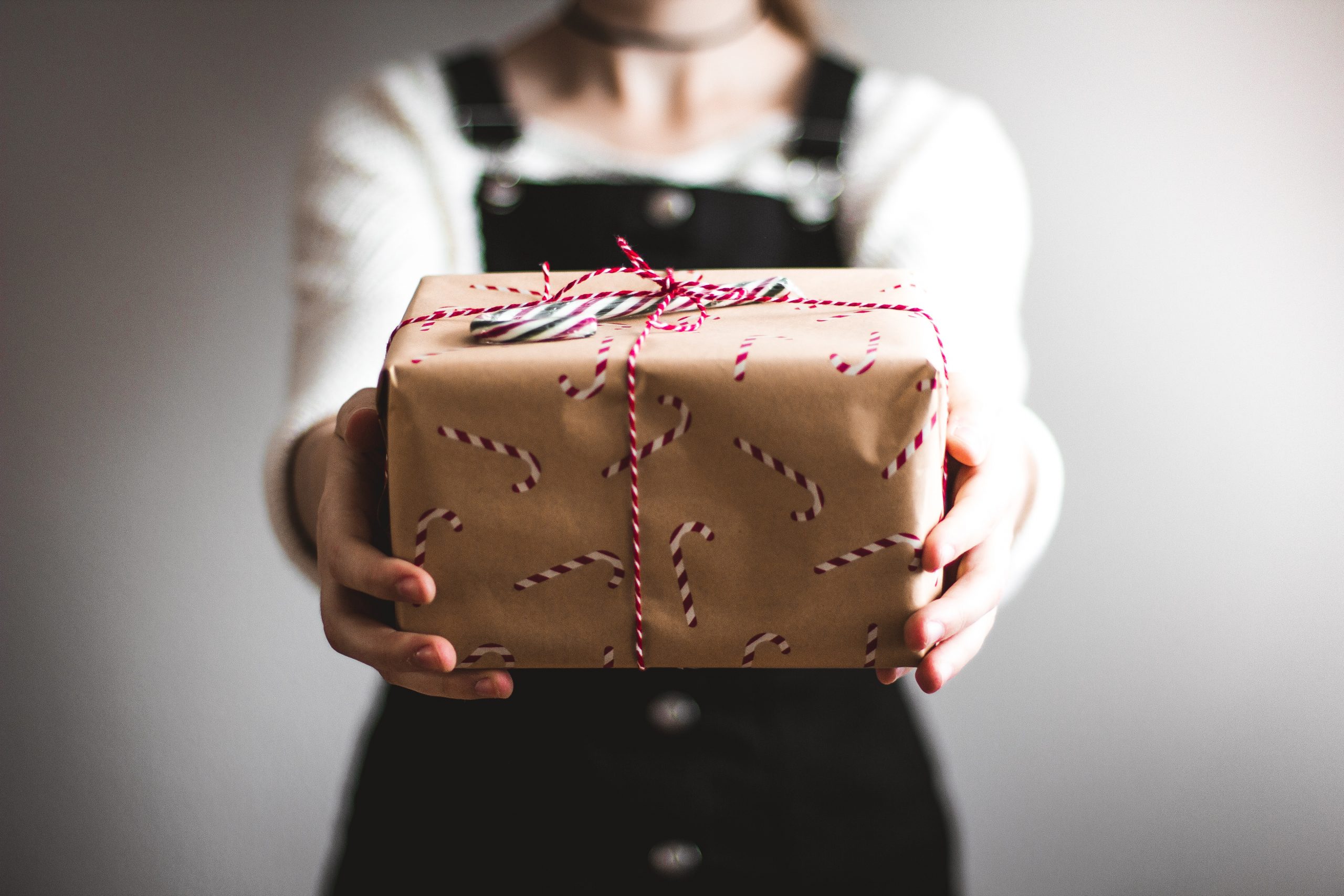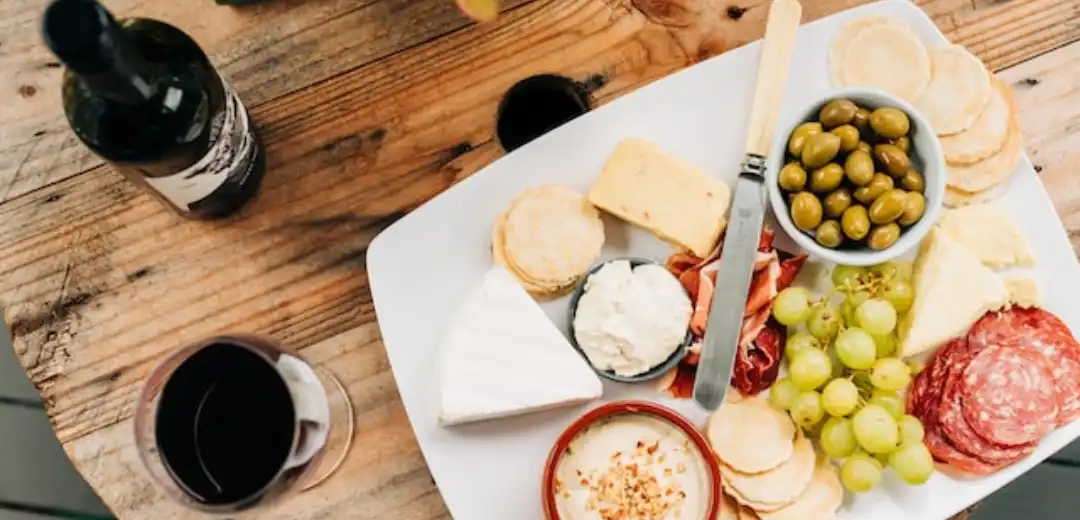Sustainable Christmas: How We Did It
December 16, 2021

December 16, 2021

We all love Christmas, but one overlook aspect of it can be sustainability. A scintillating topic, we know, but it's essential nonetheless.
Consumers in the UK will go through over 220,000 miles of wrapping paper each year; DEFRA estimates that this could cover the isle of Guernsey, and whilst we'd all like our own private island (Tracy Island, anyone?), who has the bin space for that?
So, this begs the question. How can we make the season of giving less impactful on the Earth? Well, we're glad you asked.
Unwanted gifting means that, on average, 42 million pounds worth of presents are dumped unceremoniously into landfills each year. With Amazon seeing up 47 orders per second in 2013 (a figure that has only continued to rise, we're sure) in the UK in the run-up to the big day, it should come as no surprise that we're overspending.
But there are some things we can do to reduce that impact, so we chatted to the team at Eco Essex on the best ways to gift friends and family mindfully. Here's what they recommended:
Firstly, buy experiences. Whether concert tickets or reservations at that fancy restaurant the giftee always wanted to try, a memory lasts far longer than that trinket you've been eyeing. By reducing the number of physical gifts, you're taking the most significant step possible to a sustainable Christmas.
Secondly, consider buying second-hand. I grew up in a low-income household; my Mum used to buy many of our clothes from charity shops, although she'd always say they came from Next as we were the next kids to wear them - parents are full of helpful little lies, aren't they? But, this did give me an appreciation for the sheer volume of goods that would be discarded with so much life left in them.
Every Christmas, I make a point of sourcing second-hand goods for many of my gifts. Whether that's a vinyl record for the audiophile in your life from Discogs or that hard-to-find clothing item from Depop, the second-hand market is thriving. As long as you're sourcing well-conditioned items, your giftee need be none the wiser.
Finally, this one doesn't appear to anyone but the craftiest of gifters. So put on your thinking caps, get creative and break out the sewing machine. As long as you're not gifting itchy sweaters (looking at you, Aunty Dot!), then the thought counts.
Some of these tips aren't for everyone, admittedly. But, if you're still intent on buying gifts, consider finding small businesses that champion sustainability.


Chocolate for breakfast is perfect, but why is it only acceptable in December? It almost feels unfair with Toblerones, Celebrations, Roses, and an assortment of selection boxes lying around for most of the month. Either way, it leads nicely to our next point - food.
If I'm honest with myself - and I'm sure many of you are the same - we buy too much food at this time of year. Whether that's a great deal on nuts or that Christmas pudding that only Grandma will eat (seriously, we waste 5 million of them a year), 7 in 10 people admit to buying more food than they need, but we're sure the actual figure is even higher.
Looking beyond the food, the UK uses 4,500 tonnes of aluminium foil when preparing and storing Turkey and Christmas foods. Overindulging at Christmas is a great British pastime; it's going to happen. But how about we make that 11pm cheeseboard less CO2 heavy?
There's a reason this is the first port of call in the Reduce, Reuse, Recycle mantra. As much as we'd like to avoid plastics entirely, they're unavoidable for safety and hygiene reasons, such as wrapping your turkey. But what you can do is consider buying other items loose.
Fruit and vegetables are the easiest things to find in this state - if you can, reuse a bag when picking up fresh produce or set a new habit and grab some reusable produce bags.
For cheese, cold meats and other deli items, consider visiting your nearest deli and seeing what ranges they offer. Cathedral City is great, but does it belong on a cheese board? The jury's out.
Christmas doesn't need to be planned with military precision, but it can be considerably more straightforward with a little forethought. So plan out your shop and grab what you need over a few weeks or months to avoid getting caught in a last-minute queue on Christmas Eve.
It also means you're not buying food for the sake of it, so you won't end up throwing away mince pies - of which almost 40% are discarded annually.
Remember that shops are only closed for one day, and you don't need to waste time panic buying your body weight in parsnips.
Did you know that recycling one aluminium can save enough energy to run your Christmas tree lights for two hours? It's a no-brainer. For a holiday with giving as the theme, we could do much more to give back to the planet.
For example, if you recycled the UK's food waste into energy, you'd power an average UK home for 57 years. Whilst we're on recycling, one area to consider is booze. It's 5 o'clock somewhere, right?
We're all partial to a little tipple or two at Christmas - sometimes a little too partial - but, unfortunately, only 1 in 6 glass bottles is recycled, despite the UK's rigorous glass recycling process and over 50,000 bottle banks and curbside collections.
We could save 4,200 tonnes of CO2 per year if all of this glass were to be recycled; that's the equivalent of taking 1,300 cars off the road.
The last few years have been heavy for us all; Christmas is a time to let loose, unwind and forget some of the madness. As such, a zero-waste Christmas is unattainable for most and not even on their agenda for many - and that's more than ok too. However, taking a few steps to lessen the impact of Christmas is better than no steps at all - Santa's lucky that his sleigh is low emissions; we'll let him off the hook for another year.
Whatever you're doing and wherever you're going from, everyone at AnyVan, we wish you the absolute best time, and we'll see you in the new year.